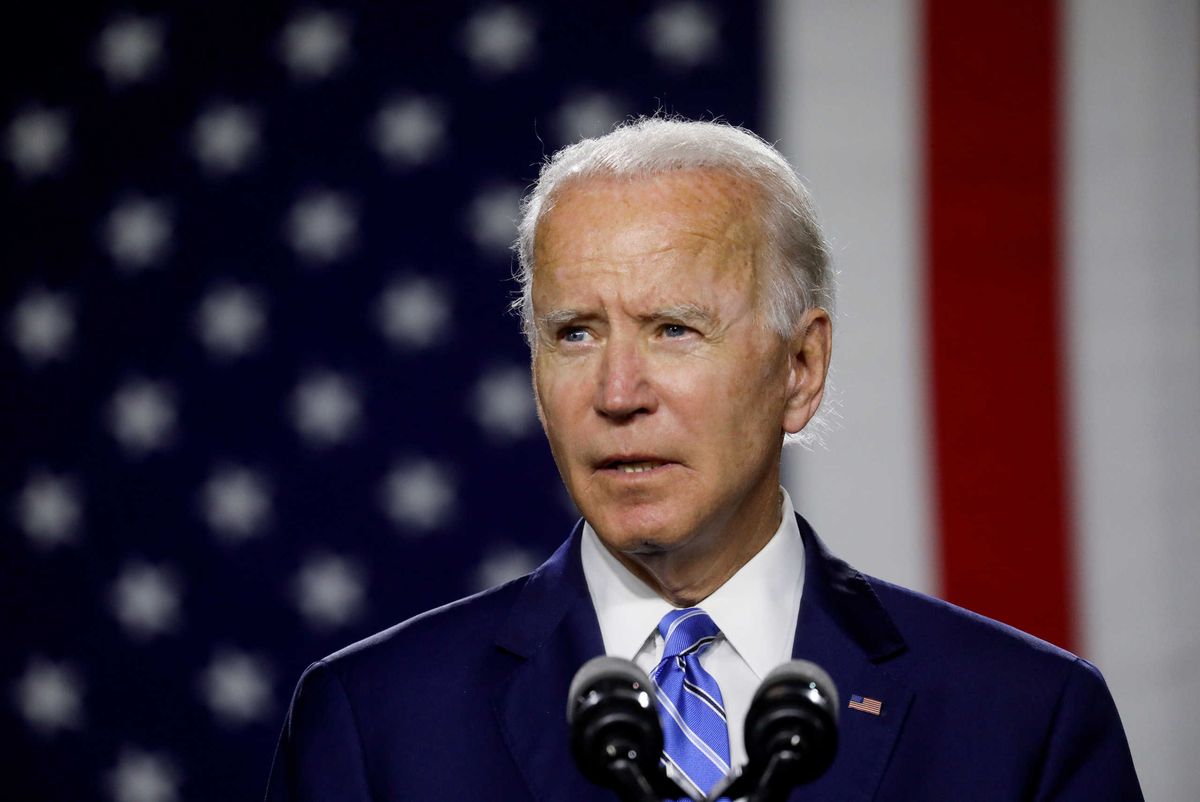Biden’s executive order on ethics commitments, explained

A few minutes every morning is all you need.
Stay up to date on the world's Headlines and Human Stories. It's fun, it's factual, it's fluff-free.
With this order, Biden hopes to loosen the grip of corporate influence on Washington and restore faith in a government riddled with corruption allegations.
On his first day in office, President Joe Biden signed the “Executive Order on Ethics Commitments by Executive Branch Personnel.” In doing so, the new president is attempting to severely limit the power corporations have over the federal government.
Echoes of former presidents’ executive orders
Former President Donald Trump initially ran for president promising to “drain the swamp” and reduce the influence special interests and lobbying groups had in Washington. Shortly after Trump was sworn in as president of the United States, he signed into office a similar “Ethics Pledge.”
Under this pledge, anyone accepting a political appointment under the Trump administration and future administrations had to commit that they would not work for a lobbying firm until five years after they left the position.
Though this original executive order expanded upon former-President Barack Obama’s “Ethics Commitments by Executive Branch Personnel” issued in 2009, it included many loopholes that allowed those who served in the administration to skirt the rules. Watchdog groups reported that the Trump administration avoided holding these officials accountable after they left the White House.
Biden’s executive order
Before Biden was inaugurated, Massachusetts Senators Elizabeth Warren and Ed Markey, along with Oregon Senator Jeff Merkley, urged the incoming president to take action against the ongoing lobbying taking place in Washington.
“We strongly support your commitment to demonstrate with your actions,” the three wrote in a letter to Biden in December, “not just your words – that public servants in the Biden-Harris administration will serve all Americans, not just themselves or narrow special interests.”
Wasting little time, Biden signed the “Executive Order on Ethics Commitments by Executive Branch Personnel” on January 20, the day he was sworn in.
Many of the requirements in the order are the same as those issued under Obama and Trump. Administration officials are prohibited from lobbying for the length of Biden’s term, plus two years, one year longer than the former presidents had stipulated. The order also incorporates a “lobbyist gift ban,” which bans every executive branch appointee from accepting gifts of any kind from a lobbying firm while serving in the Biden administration.
Additionally, under the “Employment Qualification Commitment,” the order states that the appointee must “agree that any hiring or other employment decisions I make will be based on the candidate’s qualifications, competence, and experience.”
The “Golden Parachute” and “Revolving Door” bans
One of the key additions that Biden hopes will restore trust in government is the “Golden Parachute” ban. This agreement bans senior advisers from taking cash bonuses from their former employers before joining the administration.
In President Trump’s administration, Rex Tillerson, Elaine Chao and Gary Cohen all received multimillion dollar bonuses after leaving their jobs in the private sector to go work for Trump.
In President Obama’s administration, former Treasury Secretary Jack Lew and Obama’s nominee for treasury undersecretary, Antonio Weiss, both accepted payments from the banks they worked for before joining Obama’s staff. Weiss had to eventually withdraw his nomination for treasury undersecretary in light of the firestorm that this elicited.
Biden’s executive order also includes something called the “Revolving Door Ban,” which requires appointees to pledge the following: “I will not for a period of 2 years from the date of my appointment participate in any particular matter involving specific parties that is directly and substantially related to my former employer or former clients, including regulations and contracts.”
Family conflicts
After rampant claims of nepotism during Donald Trump’s four years in office – a time in which several of Trump’s children and their spouses were employed at the White House – many voters desired a fresh start.
However, with the scandal surrounding Joe Biden’s son, Hunter Biden, many worried the Biden administration would just be more of the same. “My son, my family will not be involved in any business, any enterprise that is in conflict with or appears to be in conflict,” Biden said in an interview with CNN shortly after he had been elected.
With this order, Biden hopes to loosen the grip of corporate influence on Washington and restore faith in a government riddled with corruption allegations.
Having these agreements in writing is one thing, but it is up to each administration to enforce it. Under Obama, some officials were issued ethics waivers and, in one of the last actions he took as president, Trump signed a Revocation of Executive Order 13770, nullifying any further obligation members of his administration had to avoid working for lobbyists.
“There’s no doubt that this is a strong step forward for ethics in government,” Jeff Hauser, the executive director of the Revolving Door Project, told The Hill. “The big question remains, of course, will be how strictly the Biden administration enforces this enhanced framework.”
Ultimately, while Biden’s executive order is a first step in limiting corporations’ ability to shape legislation and line their pockets, it does little to affect these companies’ influence on the rest of Washington.
Have a tip or story? Get in touch with our reporters at tips@themilsource.com




Comments ()